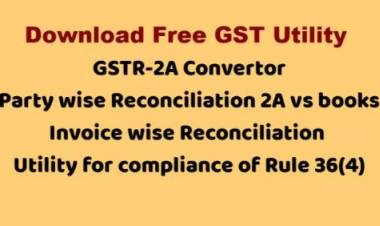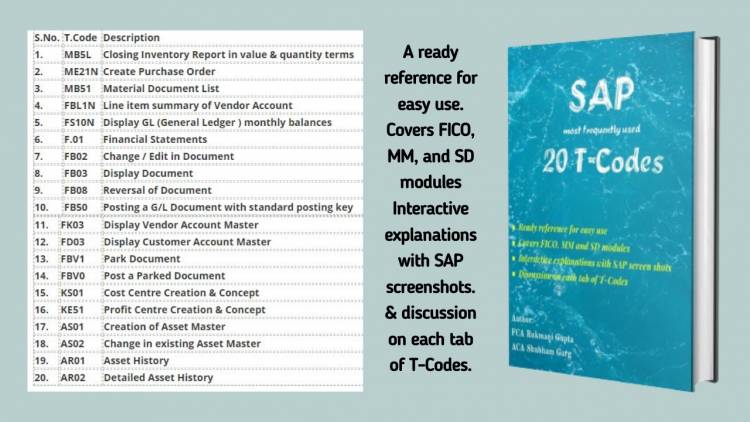Co-Working Space Model – GST Analysis
In the fast-changing world where technology is supposed to surpass human work, working styles, spaces, environments are also changing rapidly. Today, people wish to work in motion meaning thereby they do not wish to stick at one place and work specially the self-employed people. Also there are people who wish to start a new venture as self-employed but lack of investment in rented premises pulls them back.
In the recent past, India is witnessing a fast change in the working styles of professionals and self -employed individuals. Although not new, but the concept has picked up speed these days. And as we all are aware that government spares hardly someone when it comes to bringing the person within GST ambit. In line with that there arises following questions which we should know answers to so that we can at least talk on the topic in general:
- What is the meaning of Co-working Space?
Also known as Space-Sharing Work model, Co-working Space lets individuals/group of people to share a common Office Space.
Under this arrangement the following model is adopted:
A Person/ organisation has a space which can be let out to another person/organisation with a capacity of more than 4-5 people. The place also has all the necessary facilities and may include recreational activities, café etc.

The only difference is that the place is rented to different people of the same/different community/profession/interests and the interiors are generally matching with the people working in it. Thus, the people are not directly related but they make a working space shared by all.
- How does the model look like?
In this model, every person is allocated a different Desk/Suit number and identified with that number only.
- How this arrangement is treated under GST law?
GST is leviable on Taxable supplies made by a taxable person. Needless to say, that rent income is taxable under the law of GST (premises being used for business/professional purposes). However, in case the landlord/sub-lessor charges an amount as a refundable security deposit then the same shall be treated as Non-GST supply. In case, the deposit amount is used as rent then the same shall become taxable.

There can be 2 scenarios:
- Landlord (Z) Lets the property to Co-workers A, B, C, D:
Landlord (Z) is supplier of Outward Supplies.
A, B, C, D are the recipients of services.
The agreement must be entered with each and every co-worker and his/her desk/suit number must also be mentioned in the agreement. (As it will work as an address proof).
- Landlord (Z) lets the property to lessee (Y) and (Y) lets the property to A, B, C, D :
Here, the first thing to take care of is that there must be a clear mention in the agreement that Z allows Y to sub-let the property under this model.
When Y enters into agreement with A, B, C, D there must be mention of desk/suit number allotted to each one of the them.
Z = Supplier of outward Services
Y = Recipient of Service and also supplier of Service.
A, B, C, D = Recipient of services
3. Can A, B, C, D apply for GST numbers and quote the place as their place of business ?
-The answers is Yes.
-The conditions are:
- In first scenario the landlord has to enter in separate rent deeds with co-workers and mention all the details and desk/suit number allotted. This will be address proof for co-worker while applying GST registrations.
- In the second case, there must be a specific mention in the agreement between Z and Y that Y shall sub lease the property for co-working space.
- Y shall enter into agreement with each co-worker and mention of Desk/Suit number is mandatory.
- The GST law does not prohibit this type of arrangements therefore the co-workers can apply for GST numbers using the agreement and utility bill as address proof.
Now as we have understood the basic concept behind Co-working Space model and we know that if you wish to work ever in such an environment you can use the rent agreement as an address proof while applying for GST Registration.
What are the accounting treatments?
By Z :
1. On receiving Lease Rental from Y (by Z):
Bank / Y a/c Dr
To Lease Rental Income a/c
To Output GST a/c
By Y :
1. On receiving rent from A, B, C, D (by Y):
Bank/A, B, C, D a/c Dr
To Rent Income/Co-working space Income a/c
To Output GST a/c
2.On making payment to Z:
Rent Charges/Co-working space Rent a/c Dr
Input GST a/c Dr
To Z a/c
By A, B, C, D:
- On making payment:
Rent a/c Dr
Input GST a/c Dr
To Bank/Z a/c
From the above entries it is cleared that:
- Z pays GST on the amount received form Y.
- Y pays GST on the amount Received from A, B, C D and takes ITC of GST paid to Z.
- A, B, C, D also takes ITC of GST paid to Y.

 Download APP
Download APP





































